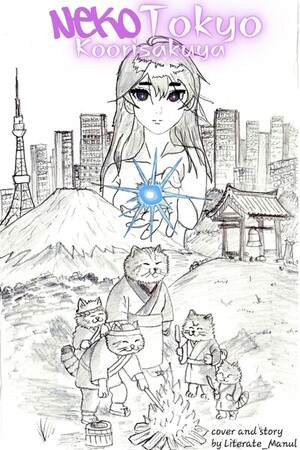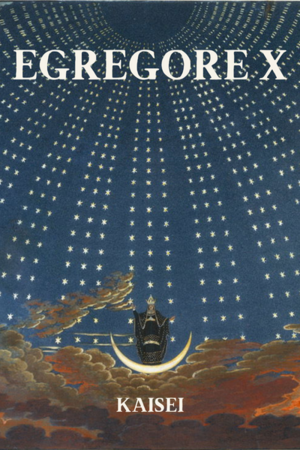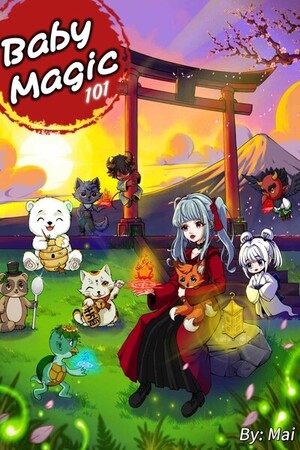Chapter 1:
WHEN THE RAIN CAME FOR US
Oathbound Odyssey
As Ragnar stepped into the garden—the one his mother had cherished like a secret sanctuary—time seemed to ripple. The roses, once pruned by her delicate fingers, now grew wild, their petals bruised by rain and neglect. Moss had crept across the stone path where her footsteps used to fall. The scent of lavender, faded but not yet forgotten, clung faintly to the air like her final breath.
Then—
Thirteen years ago…
The golden light of a fading sun spilled through the garden leaves, painting the world in honey and fire.
A woman sat in a weathered wooden rocking chair, her white skirts brushing the grass, her dark hair catching flecks of dying light. In her hands, a leatherbound book lay open.
In her lap, a small boy with obsidian hair rested his head against her chest, blinking drowsily.
Her voice, warm and smooth like the lull of a river, echoed into the stillness:
“And so, Sir Vincent Duskrane raised his blade to strike down the source of all evil—Zorath, the Whisperer. But before he could bring justice, the archangel Gaphodel descended from the heavens and stopped his hand.”
The boy yawned, rubbing his eyes with balled fists. Shafts of light dappled his pale cheeks.
“Why did Gaphodel protect Zorath?” he asked, voice small and puzzled. “Isn’t he the bad one?”
His mother chuckled softly, brushing his damp hair from his brow.
“Because Zorath was given the right to exist until the end of time,” she said gently.
“But why?” the child pressed, lifting his face to hers.
Althaea looked out toward the horizon, where the sun was kissing the garden walls.
“Because he made a vow to God—that until the last grain of time fell, every creature of the Lord would, at least once, turn their back on Him.”
The boy looked down at the open book, his little fingers tracing the illustration of a man whose hair was painted in silver ink. He frowned, confused.
“Mother… how strong was Sir Vincent? Was he stronger than the angels? Even Gaphodel?”
She closed the book slowly, her hand lingering on the cover like it was something sacred.
“Stronger than all but God Himself,”
she said, her voice touched with reverence.
The boy sucked his thumb quietly, eyebrows furrowed.
“Then… why did he die? Archangel Gaphodel is still alive… but Vincent died. Why?”
Her eyes drifted from the book to her son’s face. Her expression softened into something sorrowful.
“Because he was human, my love.”
“Human?”
Althaea set the book down on the garden table beside her and kissed her son’s forehead. She smelled of lavender and warmth and everything he would one day lose.
She held him tighter.
“Ragnar,” she whispered, voice suddenly more serious.
“What would you do if you were left alone? In a room where there was no mother… and no Halina?”
The boy’s arms instantly tightened around her. He buried his face in her neck.
“I’d be bored… and scared. I don’t want that.”
She smiled and pressed her lips to his temple, holding him as if to shield him from a future she couldn’t stop.
“Then remember this, my son,” she said, her voice low, sacred, ancient as prophecy:
“Being human doesn’t mean being weak. It means you can love. It means you can endure. And if you must stand alone one day—then let your heart be the sword God forgot to forge.”
Present day…
The memory vanished like mist in wind.
Ragnar exhaled, his breath trembling on the edge of grief.
His voice, barely audible through the hush of rain-soaked leaves:
“Mother…”
A sudden squelch of footsteps across wet earth tore Ragnar from his memory. He turned.
A figure emerged through the veil of rain—a young man, slender, soaked to the bone. His golden eyes, luminous even under the grey sky, were wide with uncertainty. Long black hair clung to his face, the storm casting him more as a ghost than a man of flesh.
“Sir… Allen—no, I mean, Sir Ragnar,” the man stammered.
Ragnar recognized the voice before the face. He inhaled slowly, letting the name settle in his throat like smoke.
“Ron.”
The young man stepped forward, water dripping from the brim of his wide hat. In his hands, he clutched a folder sealed with the insignia of the Crown.
“Your name change has been approved,” he said, holding it out with both hands. “I’ve also submitted your application to the army, just as you instructed.”
Ragnar took the folder without ceremony and tucked it into the inner lining of his long coat. The papers were warm from Ron’s grip—soon to grow cold.
“Goodbye, Ron.”
He turned away.
But Ron didn’t leave.
He stood in place, fists trembling at his sides, his breath shallow. The rain ran down his cheeks like tears, though one couldn’t be sure if it was only the rain anymore.
“Sir Ragnar,” he said at last, voice breaking. “Please… allow me to serve you a while longer. I swear I won’t be a burden.”
Ragnar stopped.
He turned slowly, eyes meeting the desperate gleam in Ron’s.
The young man’s hat fell as he knelt into the soaked soil, hands clutching at nothing. His clothes clung to him like desperation. His lips trembled, but he didn’t speak again.
Ragnar stepped forward and placed a hand on his damp shoulder, firm but gentle. There was no anger in his gaze—only solemnity.
“Ron,” he said quietly. “It’s time we parted ways.”
Ron’s chin lowered—but Ragnar wasn’t finished.
“But before you go,” he continued, “I ask three things of you. Three final duties, and then—you’ll be free.”
Without hesitation, Ron dropped to both knees, bowing until his forehead kissed the mud.
“I swear on my life, I will fulfill them.”
Ragnar’s lips curved, not in cruelty but in memory—something soft and sad.
“First,” he said, lifting his gaze toward the cloud-choked sky, “send a telegraph to four places: the Metropolitan Police, the Immigration Office, the Obsidian Corps, and the Royal Marines.”
Ron fumbled for his notepad, nodding rapidly as he wrote.
“Address the messages to Torren Etskald, Varkis Etskald, Anthony Etskald, and Levi Etskald.”
“Noted, sir,” Ron replied, voice steadier now, though his hands still shook. “And the second?”
Ragnar reached into his coat once more and drew out a small, folded piece of paper—pressed with time, edges worn with care.
He extended it toward Ron.
“Go to my mother’s grave,” he said, his voice suddenly quieter, as if speaking to someone far away. “Leave a bouquet of pink and white carnations. Nothing more. Nothing less.”
Ron took the paper with both hands, as if it were a sacred relic. He didn’t ask what the third task was.
Not yet.
“And the third,”
Ragnar looked at his mansion,
“Live happily. Be healthy. Make a family.”
Ron covered his face with his palm,
“I will sir, I will.”
And so, two men who will one day become sources of inspiration parted ways.
A FEW HOURS LATER-
LOCATION- THE ROYAL MARINES, MARITIME OFFICE OF WESTRY
Voices rose and clashed across the long, oak table. Candles flickered under the weight of tension that hung thick in the air.
“The Cymrians are sending their warships into our waters.”
“Even after the treaty?”
“Damn the treaty—we should’ve wiped them out when we had the chance!”
Arguments flared like fire catching dry leaves. Hands slammed the table, brass rings flashing under oil-lamp light. Maps lay crumpled, ink smudged with sweat and salt. But amid the rising storm of voices, the senior admiral at the head of the table turned his gaze—steady and searching—toward the far end.
There sat a man carved in silence.
Brown hair, brown eyes.
His navy-blue coat clung to his broad frame like armor, its crimson lining briefly glimpsed with every shift of movement. Sea salt had stiffened the cuffs, tracing white ghosts along the rich wool. Gold trident-shaped buttons gleamed faintly, though they bore the dull sheen of battles survived. A storm-gray sash crossed his chest, thick with medals—none dared clink against each other, as if even honor itself feared to break the stillness surrounding him.
Torren Etskald did not speak. He did not need to.
KNOCK!
A sharp knock splintered the air. All eyes jerked toward the heavy oak door.
“Who the hell is it!?” barked a lieutenant.
“Telegram for Sir Torren,” came the muffled reply.
A pause. Then, a voice—clear, calm, in absolute control:
“Let him in.”
The door creaked open. A small chore boy shuffled in, dripping wet, clutching a damp parchment against his chest as though it might burn him. He stopped before Torren, trembling, and held it up with both hands.
Without a word, Torren took the parchment.
He unfolded it.
His eyes scanned the message. The flicker of a candle caught the subtle twitch of his jaw.
There were only four words, burned in black ink.
MOTHER HAS LEFT US.
For a heartbeat, no one moved.
Then—like a crack in a dam—tears rolled silently down Torren’s face.
He did not sob. He did not speak.
He wept—a rare, terrible thing, like watching stone crumble.
“W-What happened?” someone whispered, their voice already choked with fear.
No answer came.
The senior admiral stared at him, the lines on his weathered face deepening.
What could shake Torren Etskald? he wondered. What could pierce that iron shell?
Then he remembered.
Five years ago. A boy of eighteen, walking into recruitment alone, jaw tight, eyes hard.
They had asked him, “Why the marines?”
He had only said two words.
“For Mother.”
Now, that boy—grown into a man of towering stature and unshakable silence—rose from his seat.
The chairs around him creaked, the men beside him shrinking under the shadow he cast.
“Sir,” he said, turning to the admiral.
His voice did not shake.
“As of today, I resign from the Royal Marines.”
The room erupted.
“What?!”
“Are you mad?!”
“You can’t just walk away!”
“Sergeant Etskald, please reconsider!”
But Torren didn’t reply. His boots struck the floor with heavy, final steps as he walked away—past the stunned officers, past the gawking boy, past the desperate calls.
And then he was gone.
Only the sound of rain filled the silence that remained.




Please sign in to leave a comment.